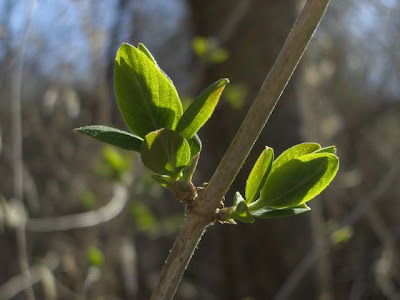"Gilbert White (1720-1793) transformed the way we look at the natural world. He is recognised as one of the fathers of ecology.
Gilbert White, curate at the Hampshire village of Selborne, was one of the first English naturalists to make careful observations of his surroundings and record these observations in a systematic way."
Natural History Museum, UK
"First in his Garden Calendar (from 1751) and then in his increasingly vivid and detailed nature observations in his letters to his friends, White created a new language of nature, which eventually brought his work to the attention of the scientific luminaries of the Royal Society in London. His mix of science and poetry, precision and beauty would be a marked influence on the Romantics. Wordsworth and Coleridge both loved his writing while Keats's debt to White's language and observations can be seen in his own ideas about 'the Poetry of the Earth'...
In its quiet and unobtrusive way, White's deceptively simple account of the comings and goings of the wildlife and animals in Selborne began the shift towards our modern ecological sensibility and taught us to look at Nature with joy, respect and empathy."
BBC Four: The Century that Made Us
I try to imagine what it would be like to spend as much time as White did, observing and recording the daily changes in his natural world. It must have been calming and meditative, as well as absorbing and exciting.
Not a small change, but a major seasonal change, has just transformed our world. And with the incredible technology that we have developed by now, we can see and record just about any aspect of it we wish. And share it almost instantly with our friends.
One of the most exciting moments, and one so quickly over, occurs when the leaf buds start to open.
Nowadays, we take scientific knowledge for granted. We tend to assume that somebody out there knows just about all there is to know about any given aspect of our world. Though the knowledge base is huge, I think we've really just scratched the surface. What there is to "know" about any given thing is almost infinite.
According to Wikipedia, "In botany, a bud is an undeveloped or embryonic shoot
and normally occurs in the axil of a leaf
or at the tip of the stem.
The buds of many woody plants, especially in temperate or cold climates, are protected by a covering of modified leaves called scales which tightly enclose the more delicate parts of the bud.
Many bud scales are covered by a gummy substance which serves as added protection.
Since buds are formed in the axils of leaves, their distribution on the stem is the same as that of leaves. There are alternate,
opposite,

and whorled buds,
as well as the terminal bud at the tip of the stem. In many plants buds appear in unexpected places: these are known as adventitious buds."
And then there is the kind of knowledge that can't be communicated in language, a deeper form of knowledge that comes when we directly experience something. In a high school poetry class, we were given an exercise one time to describe in our own words what the poet meant when he wrote a particular poem. I couldn't do it. At that particular moment, I got completely stuck because it seemed to me that the poem itself said what it needed to say and anything I might have to add would just ruin it.

.jpg)
.jpg)
.jpg)
.jpg)
.jpg)
.jpg)
.jpg)

.jpg)
.jpg)
.jpg)
.jpg)
.jpg)
.jpg)
.jpg)
.jpg)
.jpg)
.jpg)
.jpg)
.jpg)
.jpg)
a.jpg)
.jpg)
.jpg)
.jpg)
.jpg)